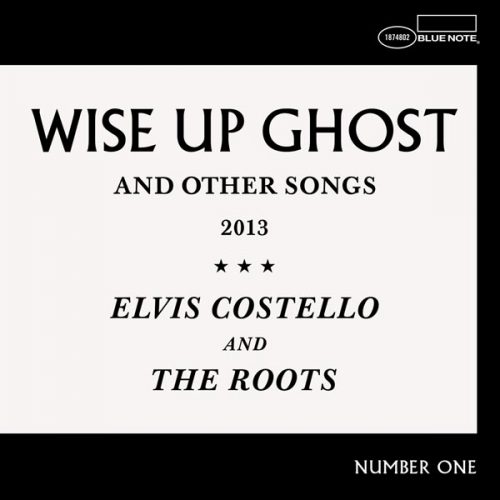Musicians separated by age, style, and demographic, Elvis Costello and the Roots are nevertheless natural collaborators bound by wide taste, insatiable appetite, and fathomless record collections. This is particularly true of Roots drummer/de facto bandleader ?uestlove, the musical omnivore who is the band’s most recognizable member and perhaps the only popular musician outside of Costello who values the music press. This is not incidental to Wise Up Ghost, the unexpected 2013 collaboration between Costello and the Roots. As recognizable as both parties are — the Roots are Jimmy Fallon‘s house band, soon to inherit the throne from Doc Severinsen on The Tonight Show; Elvis Costello seizes any opportunity to ham it up on camera — neither are exactly popular popular artists. Between the two of them, they have a grand total of four Billboard Top 40 hits — two apiece — which suggests that their instincts run against the grain, something ?uestlove admits in his 2013 memoir, Mo Meta Blues, when he confesses he always preferred deep cuts to hit singles. This sensibility thrives on Wise Up Ghost, which quickly dismisses its two potential crossover singles — the ominous “Walk Us Uptown,” which is the greatest indication of the album’s vibe, then the slyly funky slow groove “Sugar Won’t Work” — before getting down to the hard work of recontextualizing forgotten music from Costello‘s Warner years while offering barbed social commentary in the vein of What’s Going On or There’s a Riot Goin’ On. Here, the project’s origin as a wildly imaginative reinterpretation of Costello‘s back catalog is evident, but it also speaks to how Elvis rose to the challenge of working with a live hip-hop band. Lacking the context of heavy samples, he nevertheless embraced hip-hop’s postmodernism by jamming together the lyrics of “Hurry Down Doomsday (The Bugs Are Taking Over)” and “Pills and Soap” for “Stick Out Your Tongue,” while “Refuse to Be Saved” evokes the ghost of the Dirty Dozen Brass Band‘s appearance on “Chewing Gum” and “Tripwire” suggests “Satellite.” These two songs were on Spike — which would’ve been the Costello album on the charts while ?uestlove was in high school, also not entirely a coincidence — and much of the sensibility of Wise Up Ghost derives from those sometimes underappreciated early Warner albums Spike and Mighty Like a Rose, two albums overly dense in sonic and lyrical detail. So too is Wise Up Ghost, a record that flaunts its cerebellum as it progresses, but the Roots‘ emphasis on smart, textured grooves grounds the album even if it hardly widens the album’s potential audience. This is an exquisitely detailed, imaginative record that pays back dividends according to how much knowledge, either of Costello or the Roots or their idols, a listener brings to the album. It’s not exactly alienating but Wise Up Ghost does require work from its audience, and the more you know — and the more you listen — the better it seems.





